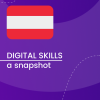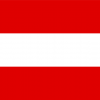ABZ*Digi Cafés in Austria
Digi Cafés is an initiative organised by ABZ* Austria which promotes specific training and peer-to-peer learning about digital tools. As the Covid-19 pandemic pushed for quick digitalisation, more women were confronted with having to use digital media – during, and outside of, working hours. The idea for Digi Cafés grew out of this context and need for digitalisation training. The core of the Digi Cafés is women-to-women cooperation: rather than developing a random assortment of individual digital tools, participants can exchange knowledge with like-minded individuals and learn from each other’s experience. Since the initiative’s kick-off, Digi Cafés have become vital spaces for enabling the free and easy exchange of ideas using digital tools.
Background and context
ABZ* Austria is an association focusing on the promotion of work, education, and the future of women. Founded in 1992, the association brings together over 150 employees from different ethnic and religious backgrounds, and across education levels with the aim of promoting equality between men and women in the context of the labour market. ABZ* Austria operates in more than 10 locations throughout the country.
An on-site ABZ* Digi Cafés
Digi Cafés are an excellent tool for companies and organisations to implement when seeking to conduct on-site training focused specifically on female employees, and when aiming to diversify the current talent pool. Participation in the Digi Cafés is fully voluntary, and participants are given the opportunity to enter sessions they consider valuable and leaves ones that do not fit their learning purposes at their own free will.
The format of Digi Cafés
In early 2020, Digi Café sessions were organised every two weeks. As of 2021, they take place once every 2 months. One session lasts between 30 minutes to an hour, and each participant has the opportunity to present a different digital tool. After the presentations, participants have a chance to test the different tools and share their opinion on their practicality. Amongst the various software tools already presented and explored by Digi Cafés' participants, are included: Trello, Edupad, CryptPad, Scrumblr, Flinga, Mindmeister, Oncoo, Padlet, Easyfeedback, Loom and many more.
What makes Digi cafes a good practice?
The Digi Cafés sessions in Austria pilot an innovative training and advisory format that enables the progressive development of digital skills, both on-site and online. The voluntary format correlates with increased interest and serves to further streamline the topics explored: in this scenario, only participants that are very interested in the topic end up taking part in the session, an aspect that respects also individual freedom and decision-making, and places the "action" back into the hands of the learner.
The programme is inherently inclusive, resting on women-to-women collaboration, and since its start has succeeded in setting up a welcoming environment, where different viewpoints, perspectives, and experiences, can meet. Each Digi Café session is recorded and made available to all participants – making this initiative score high in accessibility and contributing to making this a good practice in bridging the digital skills gap.
The Digi Cafés' sessions are also built on a solid methodology that combines digital competence, psychology, and social studies' aspects, using ABZ* Austria's experience as an institution that excels in adult education. Another area where Digi Cafés have proven especially effective is in removing barriers to the use of digital tools for learning and communication (lowering the inhibition threshold in the use of digital tools).
The format promotes peer-to-peer exchange and free and confident use of digital tools. It helps to reduce digital barriers and facilitates the digital transformation of Austrian economy and society, supporting the development of both basic and intermediate digital skills. The initiative has been awarded international recognition due to its relevance and effectiveness. Feedback from participants of the Digi Cafés shows that they appreciate the simple and effective nature of the sessions, where they have the opportunity to learn and exchange on various digital tools.
In March 2022, the Digi Cafés were featured amongst the 10 best practices for developing digital skills in the WISE sector by the EU-funded project B-WISE. Last but not least, the Digi Cafés are a good source of inspiration for organisations that want to make sure their employees are ready to adapt to the changing conditions brought about by the digital transformation by introducing solid and forward-looking, innovation-based training models for their staff.






